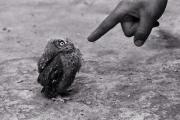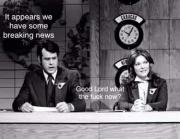Shrek posted this on Facebook and Instagram today, along with an accompanying video I can't embed here. He said:
This goes in the face of what I've heard from many people, but it's an interesting demo. Curious to hear people's thoughts on this.Trigger Jerk is an Illusion! There is no such thing. Your trigger finger is not strong enough. In this vid I pulled the trigger with this 1/2" ratchet. Look how hard I hit the ratchet. I regularly break Glock triggers so I carry extras. Lol. Trigger jerk is actually #Anticipation. Anticipation starts in the brain and moves the gun before it goes off. Not your Finger!!! Commonly known as a #flinch. The fix is relax the brain and Don't Do It! Lol.




 Reply With Quote
Reply With Quote





